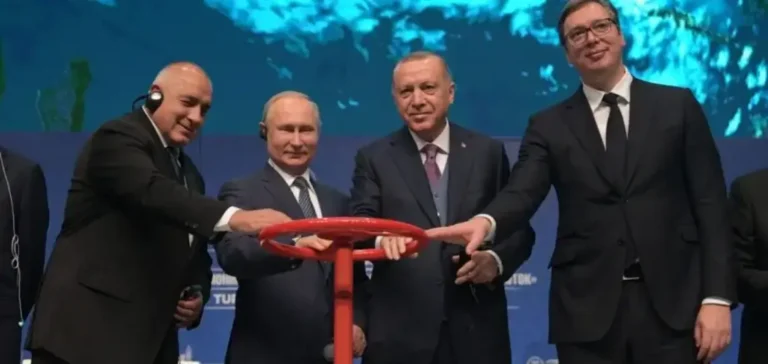Hungary has surpassed 5 billion cubic metres of natural gas imported from Russia since the beginning of the year, Foreign Affairs and Trade Minister Peter Szijjarto announced. These volumes are delivered through the TurkStream gas pipeline and its regional extensions in Bulgaria and Serbia, in accordance with long-term agreements with Russian company Gazprom.
The deliveries are part of a long-term contractual framework that accounts for a significant portion of Hungary’s energy supply. According to official data, Russian gas imports are expected to reach a peak of 7.6 billion cubic metres for the full year 2024. The Hungarian government presents this arrangement as a strategic lever to maintain energy stability and protect domestic pricing systems.
State-backed infrastructure
Flows transiting through TurkStream reinforce public investment in national energy infrastructure, particularly interconnections and storage capacity. Budapest actively supports the development and modernisation of the domestic gas network to ensure supply continuity. The central role of the state in securing these imports confirms the priority given to energy resilience.
The pipeline branch crossing Serbia is the main route for Russian gas into Hungary. This infrastructure, operational since 2021, receives technical and financial support from various public and private operators. Regional energy cooperation also strengthens investment in logistical capacity at the southern border.
Stable political commitment
Peter Szijjarto emphasised that the steady flow via TurkStream supports the national policy of controlling energy costs. The minister stated that stable gas supplies remain a priority in the state’s investment decisions. According to authorities, this direction helps contain pressure on public finances while ensuring maintenance of the energy system.
Secretary of State for International Communication Zoltan Kovacs added that the current energy strategy relies on reliable infrastructure and stable bilateral relations. Public investments in the gas network serve a dual objective: securing supply and regulating long-term prices.






















